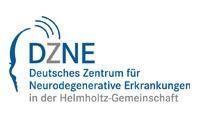On the brain’s ability to find the right direction

Scientists from Germany and abroad will be meeting in Magdeburg from 27 to 29 November 2018 to discuss latest research on spatial cognition in aging and neurodegeneration. The symposium is hosted by the German Center for Neurodegenerative Diseases (DZNE).
“This unique interdisciplinary conference will gather leading experts from different disciplines from Europe and overseas. We are expecting about 70 participants,” says Prof. Thomas Wolbers, a senior scientist at the DZNE and one of the symposium’s organizers.
The program covers a wide spectrum of research on spatial orientation and navigation. This includes e. g. studies based on human brain imaging, online-gaming as well as virtual reality.
“Elderly people often have difficulties finding their way around in new environments, which can impair their mobility, their autonomy and thus their general quality of life,” says Wolbers.
“In view of an aging population, it is important to understand the mechanisms governing spatial cognition and how these mechanisms are affected by aging and diseases like Alzheimer’s. This may help to devise strategies for a self-determined life in advanced age and support the development of novel tools to diagnose dementia.”
https://www.dzne.de/en/news/public-relations/press-releases/press/detail/on-the-… This release
https://www.dzne.de/iscan18 DZNE Interdisciplinary Symposium on Spatial Cognition in Aging and Neurodegeneration (iSCAN)
Media Contact
More Information:
http://www.dzne.deAll latest news from the category: Event News
Newest articles

Silicon Carbide Innovation Alliance to drive industrial-scale semiconductor work
Known for its ability to withstand extreme environments and high voltages, silicon carbide (SiC) is a semiconducting material made up of silicon and carbon atoms arranged into crystals that is…

New SPECT/CT technique shows impressive biomarker identification
…offers increased access for prostate cancer patients. A novel SPECT/CT acquisition method can accurately detect radiopharmaceutical biodistribution in a convenient manner for prostate cancer patients, opening the door for more…

How 3D printers can give robots a soft touch
Soft skin coverings and touch sensors have emerged as a promising feature for robots that are both safer and more intuitive for human interaction, but they are expensive and difficult…





















